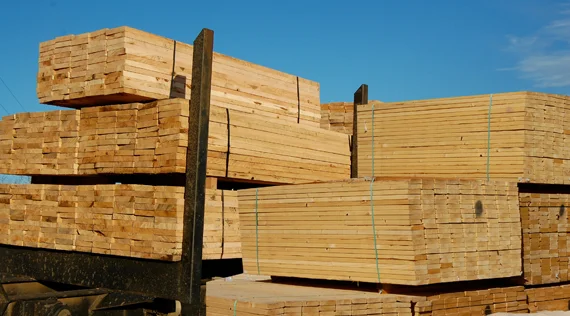
VANCOUVER (Scrap Monster): The bilateral talks between the US and Canada on renewal of the Softwood Lumber Agreement (SLA) has made little progress, sources said. The matter is most likely to return to court. Sources added that the two sides are far apart now and a deal is unlikely to happen under current circumstances.
Earlier in March this year, U.S. President Barack Obama and Canadian Prime Minister Justin Trudeau had reaffirmed the governments’ initiative to resolve disputes between the countries on renewal of the lumber agreement. The leaders had then decided to launch 100 days of talks in order to clear the deadlocks. In the joint press conference held after the meeting, Trudeau had stated that talks are very much on tracks towards final resolution of the deal. Obama too had assured that the issues pertaining to the deal would be resolved soon. The 100-days deadline is about to expire on June 18th. However, the two parties are likely to continue the efforts until June 29, when Obama and Trudeau are expected to meet in Ottawa.
The one day meeting held during end-May in Ottawa between Canadian and US lumber negotiators was described as ‘not a success’. The meeting was described as ‘an informative exchange’. The meeting did not update on the progress of the talks and failed to decide upon any date to resume the dialogue.
The bilateral agreement was signed by the two countries in September 2006, as an attempt to settle disputes regarding Canadian softwood lumber imports. As part of the agreement, the US must terminate collection of countervailing and antidumping duties on subsidized and dumped Canadian softwood lumber. Also, Canada must impose taxes and quantitative restrictions on lumber exports to the United States. In addition, the provinces were encouraged to move to a fully open, competitive, and non-subsidizing timber-pricing system. The SLA was a seven-year agreement with an optional two-year extension upon consensus by both parties. In 2012, the US and Canada had agreed to extend the deal for additional two years from 2013.
The US authorities do not want the SLA to be renewed in its present form. According to them, Canadian producers are unfairly subsidized due to the fact that majority of timber in the country is owned by the provincial governments. They also are against the norm of setting the stumpage fees administratively. The US claims that this involves unfair subsidy and is thus subject to US trade remedy laws. This assertion is being disputed by Canadian government and industry participants.
The deal could benefit Canadian lumber exporters in case of a revival in home construction rates in the US. The new housing starts in the US is likely to record growth of nearly 10% from 1 million in 2015 to over 1.1 million in 2016, as US economy recovers. The deal is crucial for trade between the two countries. Incidentally, Canadian exports of softwood lumber had totaled US$5.9 billion in 2015, rising significantly by over 7% from US$5.5 billion in 2014. The deal is also vital for thousands of workers who depend on forestry sector jobs to make their livelihood.
Meantime, sources indicate that various provincial governments and major lumber producers are divided upon the terms of renewal of the deal. Western Canadian producers have extended strong support for a new agreement, whereas the Eastern Canadian producers demand a free trade environment. For talks to progress, a consensus needs to be arrived at, at the earliest.
| Copper Scrap View All | |
| Alternator | 0.31 (0) |
| #1 Copper Bare Bright | 3.65 (0.02) |
| Aluminum Scrap View All | |
| 356 Aluminum Wheels (Clean) | 0.71 (-0.01) |
| 6061 Extrusions | 0.62 (-0.01) |
| Steel Scrap View All | |
| #1 Bundle | 475.00 (0) |
| #1 Busheling | 495.00 (0) |
| Electronics Scrap View All | |